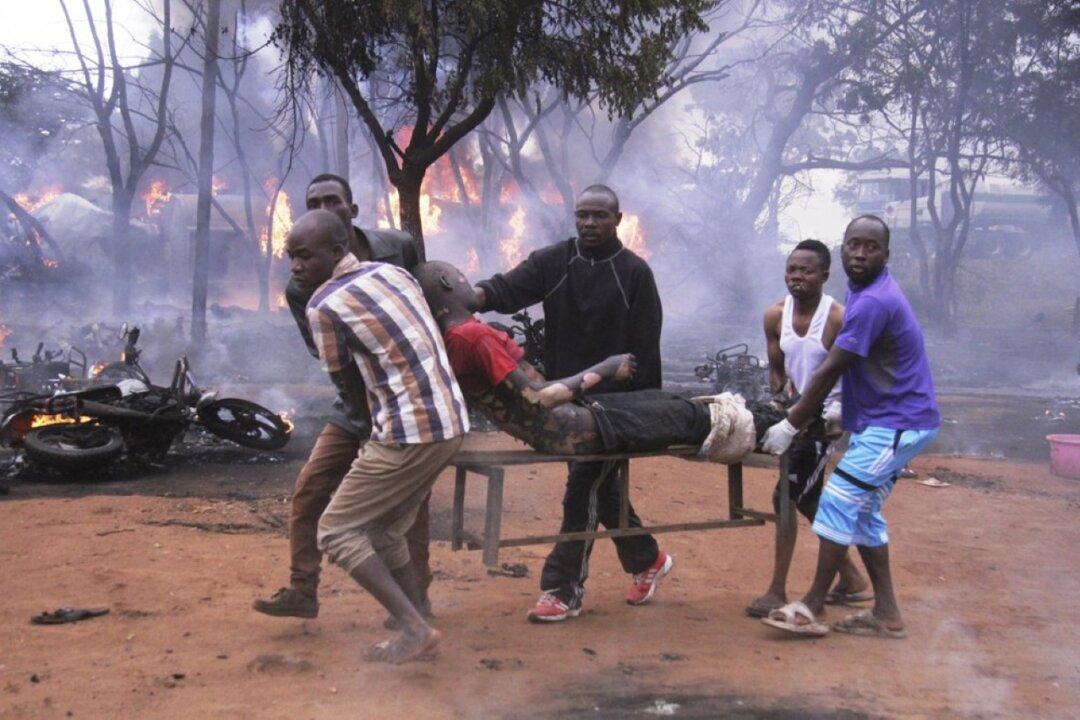DAR ES SALAAM, Tanzania—A damaged tanker truck exploded in eastern Tanzania as people were trying to siphon fuel out of it Saturday, Aug. 10, killing at least 62 in one of the worst incidents of its kind in the East African country.
Tanzanian state broadcaster TBC, citing police figures, said at least 70 more people were injured during the explosion in the town of Morogoro, located about 120 miles from the economic hub of Dar es Salaam.





